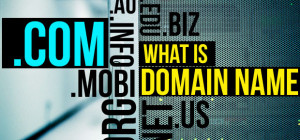 Many people, in their bids to snatch befitting domain names for their brands, focus on the many tips flooding the internet—so much that they forget to research the registrars who they’re registering their domain names with. Some even fail to study the fine points in the terms of service of registrars and what these terms mean for the future of their domains.
Many people, in their bids to snatch befitting domain names for their brands, focus on the many tips flooding the internet—so much that they forget to research the registrars who they’re registering their domain names with. Some even fail to study the fine points in the terms of service of registrars and what these terms mean for the future of their domains.
If you are one of these people, such negligence can turn around to haunt and frustrate you later, especially when you want to transfer your domain to another registrar. To avoid this, here are some practices you should look out for when registering your domain name.
- Transfer Fees
Before you choose a registrar to register your domain name, study the fine print of their terms and conditions to ascertain there’s no clause there authorizing them to charge you more than a year’s registration fee for the transfer.
You might be wondering why they should charge you a fee at all.
When you are transferring a domain name, you are technically pulling out from your current registrar and registering with another. And the only way you can register a domain with a new registrar—whether via a transfer or as a new domain—is by buying at least a year’s registration.
Your current registrar does this for you during a transfer, and that’s why they charge for transfers. So if your domain’s expiry date is 5th September 2016, after the transfer, it will become 5th September 2017, because of the added renewal.
It’s now up to you to make sure, from the onset, that you won’t get charged more than a year’s registration during a transfer—do your research. If, however, you discover any suspicious charges, the simplest thing to do is to contact your card company to reverse the charges.
- Private Registration

Of course, registrants’ contact information being published along with their new domains on WHOIS’s website gives spammers and fraudsters the opportunity to mine as many contact details as they want and pester registrants with unwanted calls and emails about various questionable offers.
Every domain owner knows that’s an issue. That’s why registrars offer free privacy services where they publish their own contact details or dummy ones on WHOIS instead of your own.
While this sounds splendid, since it spares you the trouble of having to deal with spammers and fraudsters, you need to ponder the implications of using someone else’s contact info to register your domain.
Here is the catch. To the domain registry, the legal owner of a domain name is the person whose contact info is indexed along with the domain at WHOIS. This means that when you opt for the above mentioned privacy service, in a way, you relinquish ownership of your domain to your registrar.
Therefore, if you want to elect the privacy service, make sure you study the registrar’s terms of service, to understand what this means for the ownership of your domain name.
- Pay as You Go
There are some instances where a registrant enlists up to ten years’ registration—this is popular among people looking to avail themselves of the discounted price that comes with purchasing more years of registration, as well as people who are wary of the consequences of forgetting to renew their registration.
Some registrars may pay the registry one year at a time instead of registering your domain for the ten years you paid all at once. This practice is usually coupled with a ‘no-refunds’ clause in their terms of service, so that, should you decide to transfer before the end of the ten years you paid for, they can keep the rest of your money.
To make sure you are getting the number of years of registration you paid for, search your domain name on the WHOIS website. The expiry date listed among the details that will appear should mirror the number of years you paid for.
- WHOIS Record Edit Fees
You probably already know that the details associated with the registration of every domain name are published on WHOIS’ website—a domain registration database available to the public.
Now, a registrar should be able to offer you the ability to change the information on your WHOIS record. But then some registrars will only do it for a fee. They use cheap domain registration fees to lure potential customers in, but then attach administration fees or limitations to other parts of their domain services.
For instance, when you want to update your WHOIS details, these unethical registrars may charge you a fee. Some of them may even lock your domain down for up to 60 days every time you make an edit and hence prevent you from transferring the domain.
- Domain Lock

The domain lock was created to curb domain slamming and prevent unauthorised domain transfers. This means that when the lock is on, the only way to transfer your domain is by logging in to your account and turning the lock off.
While this is a good domain protection measure, make sure there’s an option to turn the lock off whenever you want, as some registrars might hide it, as soon as you implement the lock, in a bid to frustrate you and potentially prevent you from transferring your domain when you want to.
- Domain Authorisation Code
This is a six-to-thirty-two-character code that serves as further protection against unauthorised transfer of domain names. Before you can transfer your domain, you must first request for this code from your current registrar.
You should know that some registrars might delay the process of surrendering this code to you as a way to dissuade you from leaving them. This is why it is ideal to research the registrar you want to use to find out if there have been any complaints about how long it takes them to release this code.
This way, you can be sure that your transfer would run smoothly whenever you want it.
- Domain Parking
You can park a domain you aren’t currently using with a registrar. You can even monetise it. The problem is that some registrars will charge you for the monetisation. For example, a popular registrar charges $3.99 per month for cash-parking domains.
The issue here is that it’s not only you that benefits from monetised domain parking. The registrar benefits too. Indeed more than you do, since they park thousands of domains and earn commissions from each monetised one.
The question now is: if big registrars earn millions from monetising thousands of parked domains, why do some of them charge a monthly or yearly fee for monetised domain parking? A registrar should pay you for this and not the other way round.
This are just some of the questionable practices you should watch out for when registering your domain name. The best thing to do is research whichever domain registrar you want to go with before registering your domain—this includes reading their terms and conditions. That way, you minimise your chances of having problems with them in the future.







